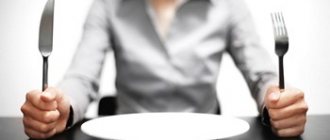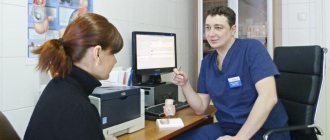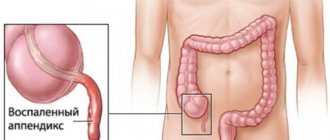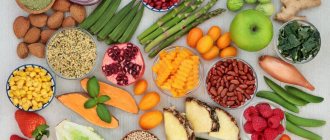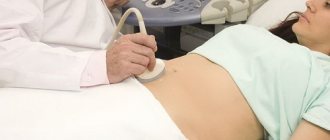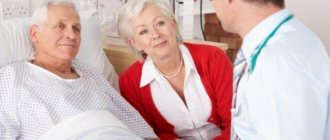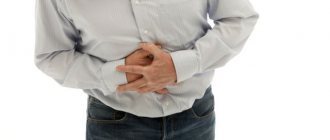Home | About us | Delivery | Advertisers | Login | Registration
Delivery on Sundays and holidays does not work!
- Medicines
- dietary supplementsVitamins
- Categories from A to Z
- Brands from A to Z
- Products from A to Z
- Medical equipment
- beauty
- Child
- Care
- Honey products appointments
- Herbs and herbal teas
- Medical nutrition
- Journey
- Making medicinesStock
Pharmacy online is the best pharmacy in Almaty, delivering medicines to Almaty. An online pharmacy or online pharmacy provides the following types of services: delivery of medicines, medicines to your home. Online pharmacy Almaty or online pharmacy Almaty delivers medicines to your home, as well as home delivery of medicines in Almaty.
my basket
Apteka84.kz is an online pharmacy that offers its customers medicines, medicinal and decorative cosmetics, dietary supplements, vitamins, baby food, intimate products for adults, medical equipment and thousands of other medical and cosmetic products at low prices. All data presented on the Apteka84.kz website is for informational purposes only and is not a substitute for professional medical care. Apteka84.kz strongly recommends that you carefully read the instructions for use contained in each package of medicines and other products. If you currently have any symptoms of the disease, you should seek help from a doctor. You should always tell your doctor or pharmacist about all the medicines you take. If you feel you need further help, please consult your local pharmacist or contact our GP online or by telephone.
© 2022 Pharmacy 84.
All about gastritis
Gastritis is an inflammation of the stomach, manifested by nausea, abdominal pain (especially immediately after eating or, conversely, on an empty stomach), and bowel dysfunction. Or it doesn’t make itself felt until erosion or even an ulcer appears. Gastritis can be acute or chronic. The first occurs due to poisoning or food infection, accompanied by severe pain, sometimes vomiting; often accompanied by diarrhea, since when toxins enter, as a rule, not only the stomach is affected, but at the same time the entire intestine. With chronic gastritis, the situation is not so dramatic, complaints are not constantly present, and usually exacerbations occur against the background of errors in the diet (fatty, fried, spicy, smoked foods) and in certain seasons - the beginning of spring and autumn, when with the resumption of the flow of tree sap in people Acid secretion increases, and with the fall of leaves, the production of protective gastric mucus weakens.
Gastritis is a “surname”. To understand what kind of stomach lesion we are talking about, you also need to indicate the initials:
- gastritis A: autoimmune, if the upper part of the organ begins to suffer from constant “strain” of the immune system. This occurs both as part of a direct attack on one’s own defenses, and in case of unrecognized food or drug intolerance, causing a failure in the “response systems”;
- gastritis B: the most common, caused by a bacterium called Helicobacter pylori, and this pathogen lives in the antrum, the middle section of the stomach, located above the navel;
- gastritis C: occurs due to the reflux of bile, which is alkaline (and the stomach, as you know, is accustomed to acid). Bile comes from the gallbladder into the duodenum and must rush down the intestine with food, but if the pressure in the intestine is high or too much bile has splashed out, it does not have enough space and it goes “one floor above”, to the lower part of the stomach, where it didn't wait.
Separately, it is worth mentioning the so-called NSAID gastropathy - inflammation or erosions (microulcers) that appear as a result of taking painkillers and aspirin.
If you take a couple of Nurofen tablets once a month, then you don’t have to worry, but if you constantly take Cardiomagnyl or ThromboAssa (“heart patients” will understand), it depends on your luck: how strong the stomach’s protective mechanisms turn out to be. The same applies to rheumatological patients who have constant joint pain and are forced to eat anti-inflammatory drugs by the handful. But they have already been warned that the stomach must be protected (we call it “covered”) with acid-lowering drugs like Nolpaza or Razo - they are the most reliable and safe in terms of drug interactions. A similar method of protection is also needed when using hormones such as prednisolone, prescribed for autoimmune processes (when “the army rebelled against the king”). Gastritis is also atrophic and hyperplastic. With the former, the gastric mucosa becomes thinner and cannot produce a sufficient amount of mucus, which protects it from the aggression of gastric juice; the latter, on the contrary, are characterized by the growth of the mucosa in response to increased production of hydrochloric acid. In unfavorable conditions, at first, when there are still a lot of regenerative resources, hyperplasia usually appears, and when the resources for constant self-patch of the mucosa are depleted, it atrophies. There may be other reasons - the same Helicobacter by its very presence irritates the stomach and causes inflammation, which can occur in a mixed, atrophic-hyperplastic type. There is one unpleasant fact: atrophic gastritis, especially coupled with infection, is a precancer, that is, it can potentially degenerate in 1% of people. But there is good news: we can cure Helicobacter (this is called eradication) and have several drugs to restore the “exhausted” mucous membrane (Ulkavis, Rebagit).
When is it time to do a gastroscopy (FGDS)?
You need to look at your stomach using a camera (“swallow a tube”) if you have:
- any abdominal pain. Even if it hurts and rumbles below the waist, the reason may be in the upper parts of the digestive tract: if the food is not processed as it should be, then the entire fermenting mass, along with gases, passes down without being absorbed, which is why the intestine, overstretched by the moved volumes, can hurt ;
- belching, nausea, heartburn (even if nothing hurts). Any of these symptoms may indicate existing or beginning gastritis or reflux disease (more on that later), and a disease caught in time is easier to treat than a protracted and therefore complicated illness;
- food is not digested, which is noticeable by the pieces of carrots floating in the toilet after “big things”. This situation may occur due to a lack of pancreatic enzymes or improper breakdown of food in the stomach. In addition to gastroscopy, it is worth taking a stool test for a coprogram (an analysis that tells what exactly has not been digested - fat, muscle fibers, starch - and, therefore, at what stage the problem is; the coprogram also includes testing for parasites - Giardia and worms);
- it is planned to begin long-term treatment with dangerous (anti-inflammatory) medications, as well as periodically (usually once a year) during such treatment;
- an operation is ahead to be sure that the stomach can cope with anesthesia, antibiotics and other drugs included in the recovery process after surgery;
- anemia and your hematologist (or internist) suspects gastritis or silent bleeding from an ulcer as the cause of your lack of red blood cells. As a rule, the search begins with FGDS, because it is easily tolerated, and only then, if there is nothing wrong with the “upper floor” of the digestive system, then the lower one is examined - a colonoscopy is performed, also known as FCS, the same “tube”, only “ from below." This procedure is no longer so simple, but sometimes necessary. The same order of examinations is necessary if we are looking for sudden loss of body weight - this is called a cancer search, although along the way we can find various reasons for weight loss, the same ulcer, for example;
- I have blood relatives with stomach cancer. Helicobacter is responsible for most cases of malignant degeneration of the gastric mucosa, but there are rare examples of hereditary (genetic) cancers, and it is in these cases that you need to “keep your finger on the pulse” and undergo an annual examination. Science does not yet know how to edit the genes of adults, but pinching off an “ugly” polyp in time during an FGDS means preventing the loss of the “main digester.” Here it is worth mentioning tumor markers, the level of which in the blood can also be monitored if you are at risk. For the stomach these are CA-242, CA-19-9 and CA-72-4. In Russia, such “unsuccessful” heredity is not common, but the Japanese all go through FGDS every year, like we do through FLG (fluorography);
- Polyps or metaplasia have already been found. Usually they are absolutely benign (hyperplastic polyps - just growths of the mucous membrane), but sometimes there are also suspicious ones (adenomas, Barrett's esophagus), which can, under unfavorable circumstances, become completely bad. Polyps are removed during endoscopy, the metaplasia is “pinched” and sent for histological examination under a microscope. If the tumors have already been removed, this does not guarantee that they will not appear again, so once a year you need to check their presence;
- chronic gastritis, especially if it is atrophic, or periodically recurrent peptic ulcer. In such a situation, “monitoring and supervision” are needed every three years (unless the doctor prescribes more often);
- suspicion of celiac disease. This is an intolerance to gluten, a substance found in grains. It manifests itself as diarrhea and bloating after eating bread or porridge. The diagnosis is made on the basis of a biopsy from the subbulb (that is, from the very beginning of the small intestine), and it can only be reached with an endoscopic “tube”.
Who needs a Helicobacter test?
(aka Helicobacter pylori, or HP, “HP” - not to be confused with pH, which is “Pash”, acidity, as well as with printers, which are also HP, but Hewlett Packard). Everyone needs to exclude the presence of this infection, because it is this enemy that is responsible for the appearance (and even asymptomatic) of gastritis B, erosions, ulcers and cancer of the stomach and duodenum (the Nobel Prize was awarded for proving the connection between HP and ulcers). In addition, Hp-associated functional dyspepsia is observed when the disease has not yet developed, but discomfort, belching, indigestion and other troubles already exist.
Various detection methods have been developed - blood, feces, breath and biopsy prints from the mucous membrane are examined. Which one to choose?
- Blood can be donated for antibodies to Helicobacter as a screening - this test shows whether you have had contact with this “comrade”. This is reliable, since it is not possible to self-heal from Hp (otherwise they would not have come up with cunning treatment regimens consisting of 4 drugs, 2 of which are antibiotics, and even for at least 14 days!);
- Stool testing for Helicobacter antigen is the “gold standard”, both before and after treatment. True, you can take it no earlier than 30 days after finishing taking acid-lowering drugs (Nolpazy, Omeza and others like them), as well as bismuth (De-nol, Ulcavis). There is also a stool test for Helicobacter DNA, but it is less reliable, since “cousins” of H. pylori can live in our mouth, intestines and bile ducts, some of which are also pathogenic (that is, can cause diseases), although some are quite friendly. Pylori is not all the same as Helicobacter;
- C-13 breath urease test - also refers to the “gold standard”, but few people here do it well (there are many proposals in St. Petersburg in this regard, but according to all standards it is performed only at the Consilium clinic, and it costs more, than stool analysis);
- The helic test, also a respiratory one, requires a two-week break from antibiotics, painkillers and acid-lowering drugs, as well as a three-day diet without legumes, alcohol and limited meat and fish. If these requirements are not met, the quality of the test decreases, which underlies its slightly lower overall accuracy compared to its radioactive C-13 counterpart. But it is inexpensive and simple - all you need to do is breathe into a tube 2 times for 6 minutes;
- The urease rapid test for FGDS is performed, oddly enough, during endoscopy. A swab-imprint is taken from the mucous membrane and applied to a piece of paper with a reagent; when the paper is stained, an infection is present. It is convenient because the procedure is 2 in 1, however, there may be false negative results if the imprint is taken from that area of the surface of the stomach that is not infested, and Helicobacter itself can sit in the neighboring area and rejoice in its secrecy;
- Detection by biopsy has exactly the same pros and cons: if it is present, it is visible to the eye, but if not, then it does not mean anything, and additional examination methods are needed (feces or a breath test).
Why measure acidity?
A couple of years ago, the determination of the acidity of gastric juice came out of compulsory medical insurance (no longer carried out under the state medical policy), and at the same time it is gaining momentum within the framework of research, in private medical practice and VHI. This paradox is connected with finances, but not with the profit of commercial centers, but with the poverty of our “free” medicine, which, despite attempts at reform, is aging and almost dying. Studying the acid level (pH-metry) allows you to select the required dosage of acid-lowering drugs for gastritis, determine the cause of heartburn (the reflux of acid or bile causes discomfort, but bile, as you remember, is alkali). pH-metry also allows you to exclude nightly surges of acid as a cause, for example, of chronic bronchitis or chest pain if the heart is normal. The latter concerns a 24-hour study, in which the patient walks, eats and sleeps with a thin “chain” in the esophagus for the whole day. Measuring acidity is the basis for diagnosing GERD, a gastroesophageal reflux disease that is manifested by heartburn, a feeling of a lump in the throat, choking, bad breath, viscous saliva, nausea, and regurgitation. Essentially, GERD is a reflux from the stomach into the esophagus, and it is adapted to food, but not to acid at all, and what is the reason here - increased acidity or increased pain sensitivity of the esophagus - can be determined by pH-metry.
Is it possible without FGDS? Not all people are able to “swallow a tube” without anesthesia; some have an overdeveloped gag reflex (although this is already a reason to think about the nervous system). Some are simply afraid of this procedure, remembering their previous experience. It should be noted that in recent years the apparatus has become much thinner, and endoscopists have trained themselves to perform the procedure gently and very quickly, so there is nothing to be afraid of, the previous “executions” are a thing of the past, and the current ones no longer look like torture and are quite harmless. Nevertheless, you can often hear the question: how else can you examine the stomach?
There is a blood test called “gastropanel”: the level of several stomach hormones is studied, based on the ratio of which it is assessed whether there is gastritis and what type of gastritis it is (atrophic, hyperacid, in which part of the organ there is inflammation). Plus it includes a Helicobacter test. But be careful: not all laboratories have a complete set of these hormones in the palette, but there should be 5 indicators: pepsinogen I (PGI), pepsinogen II (PGII), PGI/PGII ratio, gastrin-17b (G17b) and Hp antibodies. The result is assessed only in complex, based on the ratio of all hormones. But still, endoscopy is always better, because oncology, polyps and ulcers can only be seen with the naked eye.
Is an ultrasound necessary for gastritis? It depends on what gastritis and what ultrasound. If bile reflux is suspected, an ultrasound examination of the gallbladder is indeed necessary, which is usually performed as part of an abdominal ultrasound (USA), which includes assessment of the condition of the liver, pancreas, spleen and sometimes kidneys.
For any pain in the abdomen, such an ultrasound should definitely be done, because problems with the outflow of bile and pancreatic diseases (pancreatitis) can create these pains without inflammation of the stomach. But the latter, like the intestines, is not visible on a “regular” ultrasound, and can only be assessed indirectly, and even then with swelling of the walls of the digestive tube. Ultrasound of the stomach is prescribed in very rare cases, it is called EndoUS because it is something in between ultrasound of the abdominal organs (presence of an echo sensor) and FGDS (this sensor is “swallowed”, the study is endoscopic).
This procedure is needed if a tumor is suspected in the middle or outer layers of the stomach, that is, not on the surface of the mucosa, as well as to study the pancreas “through the stomach” for the same tumors. EndoUS is performed only under anesthesia, which also does not add to its prevalence.
So, you have gastritis, how should we treat it? Depending on its causes, different medications will be prescribed, but most gastritis is still characterized by increased acidity, so the most prescribed ones are acid-lowering ones. They are all close brothers, and differ only in speed and strength of action, as well as in the presence of drug interactions with other medications.
Omeprazole (Losec and analogues - Omez, Ultop, Omeprazole-Teva, others should not be taken) is the oldest of all, but not the best. The owner of the lowest price (as well as the lowest safety profile), interacts with other tablets, 13% of people are not genetically sensitive to it, the rest remove it from the body, some in 8, some in 12, some in 20 hours, that is, the promised 24-hour acidity doesn't hold back. But out of habit and price, it is still prescribed by many doctors, especially in hospitals, where the principle of government procurement dictates “saving a pretty penny.”
Pantoprazole (Controloc and analogues - Nolpaza, Sanpraz... others are no better) is our favorite because it is the most reliable, restrains the increase in acidity for more than a day, and does not interact with anyone illegally. Rabeprazole (the original Pariet, and analogues Razo, Zulbex and brothers) is no less favorite, it is similar to pantoprazole in everything, if not better, because it is the only one that can be taken without connection with food (the rest are strictly before meals).
Esomeprazole (Nexium and its analogue Emanera) - has drug interactions, but is the strongest, even extinguishes hyperacidity.
There is also dexlansoprazole, but it has not yet been fully studied, and it is also expensive. To heal inflamed mucous membranes, bismuth preparations are used (De-nol, Ulcavis and less interesting options) - they perfectly restore the damaged surface, “darn” erosions and ulcers, plus they partially suppress Helicobacter pylori infection (without replacing antibiotics).
For bismuth intolerance and in especially severe cases, the slightly more expensive Rebagit is used - it blocks inflammation and also heals well, without side effects. In case of bile reflux, antispasmodics (Duspatalin) and Ursosan are prescribed, which stabilizes the outflow and neutralizes bile in the stomach.
Prokinetics are used (tablets that normalize stomach contractions, especially good against reflux into the esophagus), including Ganaton and Itomed, but the previously popular Motilium, Motilak, and especially Cerucal are not recommended, as they can cause arrhythmia. Which drug do you need? , the doctor will decide based on the examination results.
Diet for gastritis For a speedy recovery, nutrition should be gentle, but varied. It is worth excluding provoking foods in the form of fatty, fried, spicy, smoked and very salty foods. Yes, yes, including ketchup and mayonnaise. The stomach does not like buns and other baked goods and, contrary to misconceptions, fruit juices, because they increase the already considerable acidity. Vegetables and milk have alkalizing properties, which is why they are preferable to fruits. It is better to temporarily switch to a four-meal diet consisting of cereals, soups, stews, as well as stews of meat and fish with a minimum of spices.
Study the state of your body in a timely manner, be careful, do not ignore pain and heartburn, take care of yourself and be healthy!
